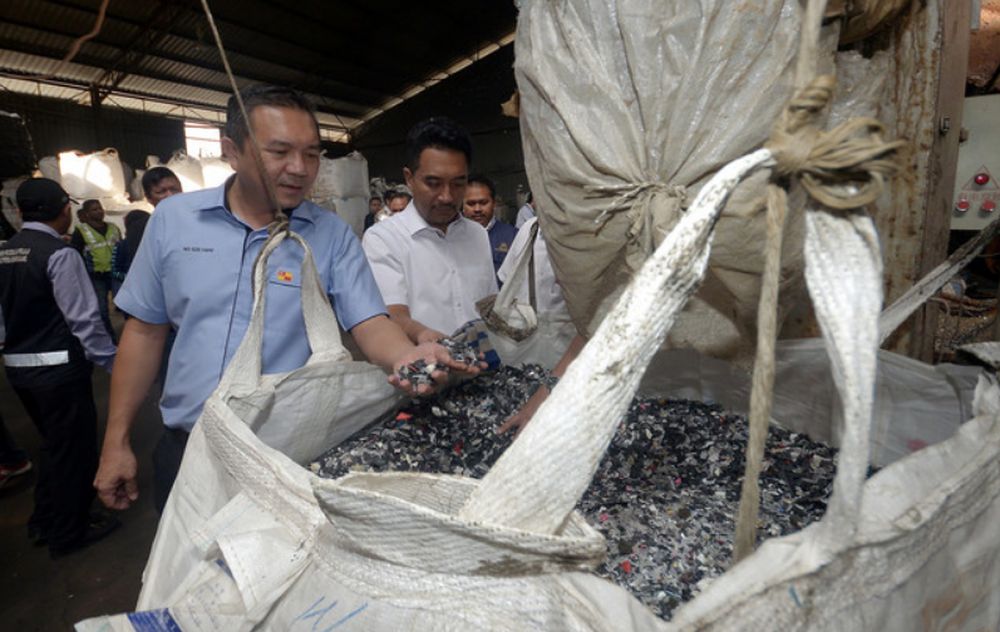SHAH ALAM, Nov 2 — The Selangor government’s decision to take over the waste management system at its 11 local authorities in stages through its subsidiary, KDEB Waste Management Sdn Bhd (KDEBWM), has resulted in a more organised waste disposal.
State Local Government, Public Transport and New Village Development Committee chairman Ng Sze Han said since the waste management was acquired by KDEBWM, public complaints about uncollected rubbish by appointed contractors had also dropped.
“This shows that KDEBWM has performed well in carrying out its entrusted duties. In addition, the use of advanced technologies such as GPS trackers will ensure that the lorries and workers to collect garbage according to the schedule,” he said when contacted by Bernama.
KDEBWM is the agency responsible for garbage collection at 11 local authorities in Selangor except in Shah Alam.
Meanwhile, Shah Alam City Council (MBSA) Corporate Affairs and Public Relations head Shahrin Ahmad said MBSA had implemented various programmes and initiatives to ensure that the city was kept clean and well maintained.
He said the MBSA would organise more programmes to educate the local population on the importance of recycling.
“MBSA has set up several recycling centres including in Sections 6, 17, 25, U5 and U13. In addition, MBSA also provides food waste composting machines at the Section 6 and Section 16 markets.
“Food waste such as vegetables and fruits will be systematically disposed of and turned into compost for use as fertilisers,” he said.
Also in its efforts to encourage recycling practice, MBSA has organised competitions at the kindergarten, primary and secondary schools.
“MBSA fully supports the government’s effort to introduce the National Cleanliness Policy as it certainly benefits the people and the local authorities,” he said.
Recently, Housing and Local Government Minister Zuraida Kamaruddin said the implementation of the National Cleanliness Policy would include a roadmap for a better and more organised waste management system.
Zuraida said the policy was in line with the government’s desire to create a clean and comfortable environment for all Malaysians.
She said her ministry has formulated the policy aimed at transforming Malaysia into a clean and sustainable nation through habits and lifestyles that places emphasis on good hygiene practices.
The National Cleanliness Policy is expected to be launched by Prime Minister Tun Dr Mahathir Mohamad.
Meanwhile, KDEBWM managing director Ramli Mohd Tahir said the company had launched its pilot project to manage recyclable waste early this year.
Ramli said the project had been able to separate about 15 to 20 tonnes of recyclable waste daily at its material recovery facility (MRF) in Klang.
“The MRF in Klang is our first plant for the purpose of collecting recyclable waste, and we are planning to open four more of such facility across Selangor in the future,” he said.
KDEBWM, which has 500 refuse compactor garbage trucks and 500 Roll-on Roll-off (RORO) trucks, collected up to 10,000 tonnes of waste daily at 11 local authorities under its purview.
He also expressed his hope that the National Cleanliness Policy to be launched tomorrow would encourage the public to practice waste separation (at the source) between recyclable solid waste and residual waste.
He said based on the data available at his company, thus far, only 10 to 15 per cent of consumers adopted such practice.
“It is time for us to encourage our community to do waste separation because we produce too much waste and our landfills will reach their authorised capacity in no time,” he said. — Bernama



















